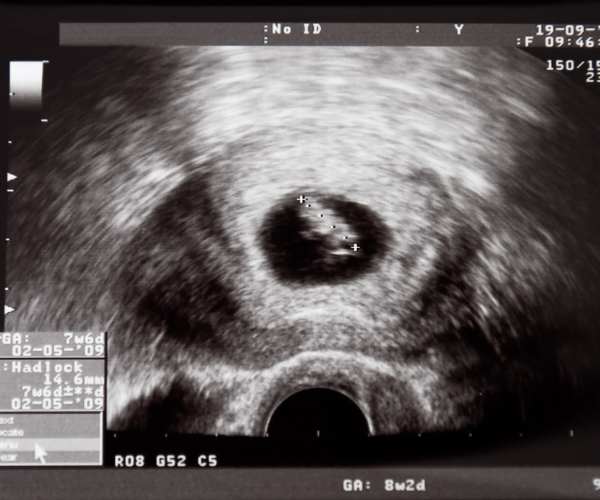How to Solve Most of the First Trimester Challenges
Congrats! You are now entering the first trimester of your pregnancy journey. This period is the most exciting phase, where one transforms alongside the journey, and at times, it transforms the journey itself. Being aware of the first trimester signs and symptoms helps you prepare for all the changes—physically, emotionally, and even spiritually—for your little angel.
Here, I will explain, with support from relevant research findings, to ensure you are well-equipped to deal with this special stage of pregnancy. Look forward to down-to-earth information and a warm tone as we discuss some of the physical and emotional development that takes place during the first few weeks.

Macro Context
The first three months of pregnancy, from one to twelve weeks, will reveal evident physical changes in the body. Your healthcare provider should be your number one resource for navigating the subtle details of the process. Let me reiterate that pregnancy is different for everyone; what may be good for one woman’s body may not be suitable for another. We also like to emphasize that whenever you feel any pain, discomfort, or something seems off, you need to talk to your healthcare provider.
Some General Problems and What These Symptoms Indicate
Nausea and vomiting during pregnancy are common in 70% to 80% of women and usually begin in the first six weeks of pregnancy, worsening between the sixth and ninth weeks. Nausea may be triggered by certain foods or smells, so it’s advisable to avoid them.
To manage morning sickness, try the following strategies:
- Eat small, frequent meals: Medical advice suggests ensuring your tummy is never empty, as this increases the rate of nausea.
- Stay hydrated: It’s important to drink fluids during the day. If water feels unappetizing, opt for ginger tea or drinks with the right electrolytes.
- Consider prenatal vitamins with lower iron content: Sometimes, iron can cause nausea in some individuals.
Why does fatigue occur during the first trimester of pregnancy, and what can be done to minimize it?
Fatigue is another common complaint affecting at least 60% of pregnant women. This tiredness is attributed to an increase in hormones, particularly progesterone, which plays a major role during pregnancy.
To manage fatigue:
- Prioritize sleep: Aim for at least seven to eight hours of sleep each night.
- Incorporate gentle physical activity: Activities like walking or participating in prenatal yoga can increase energy without straining your body.
- Eat nutrient-dense foods: Focus on whole grains, fruits, vegetables, and lean meats to meet the body’s demands.
How does one get the condition, and what is its solution?
As the uterus expands, it places pressure on the bladder, leading to more frequent urination. This can start as early as week four. Other factors may also contribute. But guess what? This is part of the first trimester, and those naps you swore to take when you got pregnant—where are they now?
To cope:
- Limit caffeine intake: Coffee can stimulate the bladder lining, so it may be wise to reduce caffeine if you have bladder issues.
- Stay hydrated: While it’s essential to drink enough fluids, try to drink less before bedtime to avoid frequent trips at night.
In which phase is tenderness of the breasts most intense, and what treatments are available?
Breast tenderness is often noticed by many women as early as week four. This is attributed to changes in hormonal levels that prepare the breasts for lactation duties.
For relief:
- Wear a supportive bra: Choose one that provides enough support without restricting movement.
- Use warm compresses: Applying warmth can help ease pain.
What happens to food aversion and preference: how does it transform and what does it mean?
Early pregnancy changes in food preferences—whether as aversions or cravings—affect 50% to 90% of would-be mothers. Hormonal imbalances can alter taste sensations, leading the body to crave certain foods while rejecting others.
To navigate this:
- Listen to your body: Eat what feels right and avoid what does not.
- Incorporate variety: Ensure a diverse diet to achieve nutritional balance while satisfying unique cravings.
Emotional and Mental Changes
Mood swings are likely to appear during the first trimester due to hormonal changes, especially fluctuations in estrogen and progesterone. Surveys have revealed that out of every four women, three experience mood swings.
To manage these shifts:
- Practice mindfulness or meditation: Engaging in activities that help focus the mind and emotions can be beneficial.
- Communicate openly: Sharing feelings with someone who will listen can provide relief.
How to manage anxiety and excitement?
It’s normal to feel anxious and thrilled as you begin this new chapter. Many mothers find comfort in talking with family members or joining social media groups to share experiences.
Strategies include:
- Engaging in community: Connect with others who understand your situation.
- Educating yourself: Knowledge about pregnancy can reduce feelings of fear during this transition.
What are the effective mental resilience tips during this transformative time?
Practical coping is vital while developing mental toughness during the first trimester. Strategies include:
- Setting realistic expectations: Recognizing that pregnancy is unpredictable helps manage stress.
- Establishing a routine: A familiar pattern can provide comfort during times of change.
Psychological Changes for the First Three Months of Pregnancy
Reflecting on family backgrounds and dreams for the future baby can provide perspective. Some women find value in writing in a diary or discussing their thoughts with their partners.
Mindfulness, which involves paying attention to the present moment without judgment, can greatly improve emotional and spiritual well-being. Consider:
- Meditation or yoga: These practices can help you feel more relaxed and connected to your fetus.
- Nature walks: Spending time outdoors can lift your spirits.
Information on Early Pregnancy Signs
Youth gambling possibility of medical first trimester specialty
What Makes It Special?
The first trimester is crucial as it lays the foundation for the fetus’s proper growth and development. Significant physiological and morphological changes occur during these initial weeks. For example, by week four, the embryo has begun to implant in the uterus, and by week six, it starts developing its heart. This period is also when the formation of most major organs, such as the brain and spinal cord, begins. More than 80% of fetal development occurs during this trimester, making it vital for both mother and baby, according to a study by the American College of Obstetricians and Gynecologists.
How long does the first trimester of pregnancy last?
The first trimester, often referred to as the first three months, begins from the first week up to the twelfth week of pregnancy. This phase is divided into three sections, meaning each week brings some progress. Knowing this timeframe is particularly useful for expecting mothers in understanding what to expect for themselves and their babies.
| Trimester | Weeks | Key Development |
| First Trimester | Week 1 – Week 12 | Organogenesis, heartbeat starts |
Symptoms Overview
What is the First Sign of Pregnancy and When Do Symptoms Start?
The first trimester symptoms can vary in intensity and duration. Here’s a brief table summarizing the most common symptoms along with their expected duration:
| Symptom | Description | Expected Duration |
| Morning Sickness | Nausea and vomiting aggravated in the morning | Weeks 6 to 12 |
| Fatigue | Exhaustion due to hormonal fluctuations | Weeks 4 to 12 |
| Frequent Urination | Increased need to urinate due to growing uterus | Weeks 4 to 12 |
| Tender Breasts | Pain or sensitivity in the breasts | Weeks 4 to 12 |
| Food Aversions & Cravings | Changes in food preferences and dislikes | Weeks 6 to 12 |
When is It Time to Worry About Weird Symptoms?
Some signs require immediate medical attention. For instance, if the cramping feels different from normal menstrual discomfort, it may signal an ectopic pregnancy or miscarriage. Sudden bleeding can also indicate something more serious and should be evaluated by a doctor.
Emergency in Early Pregnancy
Pregnant women should be aware of possible risks during the first trimester. Common concerns include:
- Spotting: Light bleeding can be normal, but heavy bleeding may indicate a complication.
- Severe cramping: While some cramping is normal, intense cramping should be assessed by a physician.
- Signs of miscarriage: Severe blood loss and loss of pregnancy signs and symptoms may occur.
Recognizing these signs is crucial; studies show that about 15-20% of recognized pregnancies result in miscarriage.
What Preventative Steps Are Possible?
Expectant mothers should consider the following changes to reduce risk factors associated with early pregnancy:
- Avoid undercooked meat: This helps prevent contracting diseases such as toxoplasmosis or listeria.
- Maintain a balanced diet: Proper nutrition benefits both the mother and the unborn child.
Why You Get Symptoms in the First Trimester
What Changes Take Place in Hormonal Levels During the First Trimester?
The first trimester experiences a significant increase in pregnancy hormones such as hCG, progesterone, and estrogen.
- hCG levels: These rise quickly and are among the earliest signs of pregnancy, leading to symptoms like nausea and tender breasts. According to Obstetrics & Gynecology, hCG levels double every 48 to 72 hours in early pregnancy.
- Progesterone: This hormone ensures the uterine lining remains thick and reduces uterine contractions, which might lead to loss.
- Estrogen: This hormone increases blood flow to the uterus, stimulating breast growth and milk duct development.
How Do These Changes Affect Physical Changes in a Woman’s Body?
The hormonal shifts impact the body by stimulating physical changes, including breast tenderness, weight gain, and even skin changes. Some women may notice acne or a ‘glow’ due to increased blood flow.
Are Symptoms Universal?
It’s important to note that not all women experience the same symptoms or intensity. Each pregnancy is unique, and it’s vital to pay attention to your body.
FAQs
When do I first see symptoms of pregnancy?
Symptoms typically appear around four weeks after conception, but it can vary.
What can I do to ease morning sickness?
Try eating small, frequent meals and staying hydrated. Ginger tea may also help.
Are there symptoms I should report to my doctor?
Yes, if you experience heavy bleeding, severe cramping, or signs of miscarriage, contact your healthcare provider immediately.
How can I cope with emotional changes?
Engaging in self-care activities, practicing mindfulness, and talking to loved ones can help manage emotional fluctuations.
What steps can I take to ensure a healthy first trimester?
Eat a balanced diet, stay hydrated, avoid harmful substances, and maintain regular check-ups with your healthcare provider.
Conclusion
The first trimester can be overwhelming, but understanding these changes can ease the transition. This phase is not only about physical development; emotional and spiritual growth is also key. Surround yourself with supportive family and friends, and don’t hesitate to seek guidance from healthcare professionals.
Embrace this journey with an open heart, and remember to take care of yourself along the way. You’re not just growing a little one; you’re nurturing yourself too.






